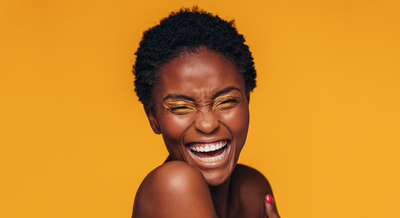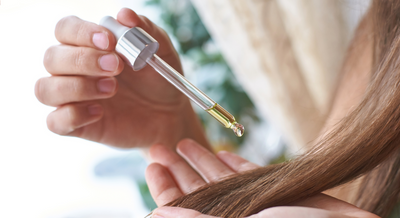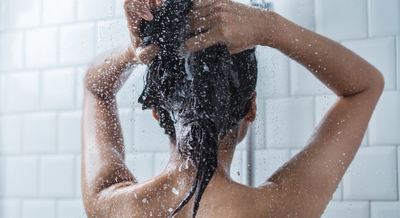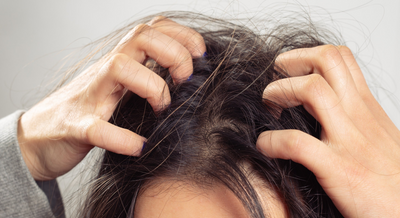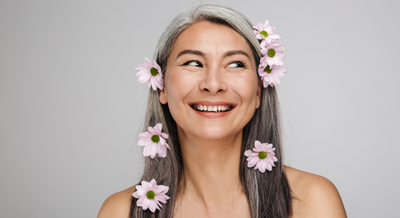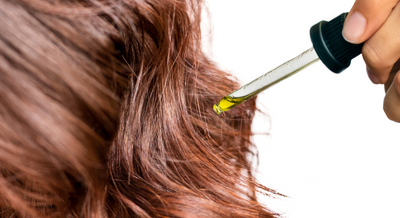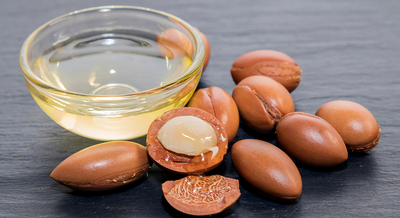Nothing is more stressful than to see yourself going bald slowly. Seeing a handful of hairs on the comb and your pillow when you wake up can be pretty traumatic.
Nobody wants to go through that frustrating phase, but almost everybody at some point in their life experiences mild to intense hair fall.
Instead of worrying pointlessly, you should focus on finding the reason behind it. No doubt, that finding out why you are going bald will take some time and effort. But once you have found the reason, you will be able to root out and possibly treat the cause behind your hair fall.
To what extent does hair fall naturally?
Beauty conscious people usually mistake natural hair fall to some form of Alopecia. The truth is, we lose a lot of hair every single day, and it is entirely healthy.
Losing fifty to a hundred strands of hair per day is fine. So, don’t panic if you see some strands lying here and there. Your body does that in order to make room for fresh ones. If the rate of loss increases more than a hundred hairs, then that can be cause for worry.
According to dermatologists, more than 85% of males suffer from hair loss at some point in their lives.
Diagnosis
Are you really suffering from hair loss, or are you just paranoid? This can sometimes be hard to answer until you have gone through some tests designed to check the rate of hair loss. Here are few:
- Pull tests-
This is the simplest of all the tests. You can diagnose this at home using the following technique.
First, take your hand and grip approximately sixty hair strands. Try pulling them out. If you have three to five hair strands on your hand, then it is good news for you that you are not the victim of alopecia. If there are more than ten, then that is not normal.
Repeat this process in three distinct areas to confirm the results. Sometimes, hair is weaker in a specific region, which can lead to a false diagnosis of alopecia.
- Comb test-
You can do the pull test by using a regular comb. For about one-minute, comb continuously all around your head.
The direction in which you move your comb does not matter. In the end, measure the number of hairs lost.
If you have lost more than ten-fifteen hairs, then the test is considered positive.
- Pluck test-
This is a more professional way to diagnose your condition. The hair is pulled out from the roots and inspected through a microscope. Experts examine the sample to find out if there are any defects.
- Daily hair count-
With a negative pull test, there is still a chance that you may have alopecia. To confirm it, you can count the number of fallen hair in a whole day.
From morning till night, you should try to keep track of every single hair you lose. Keep them sealed in a container and count at the end of the day. If there are more than a hundred strands in that container, then it is more than the average rate.
Don’t forget to consider the fact that during shampooing, you may lose more hair. If you lose more than one hundred hairs on a day that you also shampoo, it may be regarded as normal.
Therefore, try to conduct this test on a day when you do not have to shower.
- Scalp biopsy-
If after completing all the home tests, you are still unsure of the results, then you can make an appointment with a dermatologist for a scalp biopsy. A direct sample of skin and hair is taken from the area of concern and tested in the lab. This is the most common test recommended by doctors to check for alopecia.
There is another method called trichoscopy, in which doctors use a dermoscope to examine the scalp of the patient to determine the cause of hair fall.
Why is your hair falling out?
Baldness can be depressing, and it can completely change the way you look. In most cases you can treat it, or, at least slow down the process. You can only put a stop to it when you know the reason behind it.
Here are some common reasons that can compel the hair on your head to fall like autumn leaves.
1) Alopecia Areata
Sudden emergence of hairless patches on your scalp that stand out from the rest of your head, is most likely caused by alopecia areata. This is a medical condition in which hair from anywhere on your body starts to fall out in large numbers. The bald patches may even be irritated due to itchiness.
Alopecia Areata happens when the immune system attacks the hair follicles and weakens the roots. When it strikes in a particular area, then it is alopecia areata.
If it attacks your whole head and you become fully bald, then it is referred to as alopecia totalis.
If you are losing hair from all over your body (brows, facial hair, chest hair, etc.), then it is called alopecia universalis.
Although there are some things you can do to slow down the process, scientists are still not able to discover a universal cure for this disorder.
In some patients using argan oil has significantly halted the balding process.
Don’t despair, in most patients after some time, the hair will regrow and cover the empty patches. However, the regrown hair may be relatively weaker and thinner.
2) Trichotillomania
Trichotillomania is a hair-pulling disorder in which due to anxiety, stress, or a mental condition, the person compulsively plucks out the hair from the roots.
The patient is usually under emotional distress and is unable to overcome the urge to twist and pull the hair out. The victim finds relief in the pain and channels their stress into removing their hair.
This unnatural cause of hair loss affects younger people more often than older people. According to reports, most often people younger than seventeen show signs of trichotillomania.
If you are looking for the cure, then instead of going to a dermatologist, you should opt to see a therapist.
3) Sunburnt scalp and hair
Taking a sunbath surely gives you a nice tan, but have you noticed the rough texture it gives your hair in the end? This is because of the high-intensity radiation from our sun.
The sunlight reacts with the outermost layers of your hair and destroys them. Layer after layer, it penetrates deep depending upon the duration you have been exposed. If the rays reach deep enough to the core of your hair, then it spells the end for that hair.
The electromagnetic waves carry UV radiations that are incredibly harmful to your hair and can leave it severely damaged and dry.
4) Male and female pattern baldness
Growing older comes with certain changes to your body, and pattern baldness is one of them. Receding hairline is a common cause of hair loss among men.
Slowly seeing your hairline turn into an “M” shape is stressful. Try not to stress about it too bad, you can’t really do anything about it as it is cureless.
Female pattern baldness is also a thing, but the way it happens differs. In females, hair thinning starts with age. The number of hairs per each area is reduced, and the person is able to notice a considerable loss in overall volume.
5) Hormonal changes
The balance in hormones maintains the health of your scalp. Any change in it can trigger hair loss. It is quite common for pregnant women to face hair thinning. You can expect it to stop after a while when the hormones have stabilized.
6) Dandruff
While having dandruff, if you have noticed fallen hair along with flakes, then your suspicion is right — Dandruff does trigger hair fall. It weakens the hair follicles by blocking the pores.
It also strips away the nourishment that was meant to reach the roots of your hair. When your hair is deprived of necessary nutrition, ultimately, it can start falling out.
Dandruff can be treated by using essential oils and anti dandruff shampoos.
7) Deficiency of vitamin B
Is there not enough vitamin B in your diet? A lack of vitamin B can weaken your hair and can force it to fall out.
Adding more fruits, meat, and fish in your diet will be enough to fulfill the shortage of this important nutrient. You may also take some simple supplements, in order to treat your vitamin B deficiency.
8) Over-styling
Have you been styling your hair with heat styling tools every day? Then you are bound to have vulnerable and damaged hair.
Using heat-styling tools too often can rip away all the moisture present on and in your hair, leaving it dry and brittle.
The only way to avoid the damage caused by over-styling is to use heat protectant sprays. However, it is best to give your hair some time to rest and recover before you ramp up the heat styling again.
9) Too much swimming
Have you felt that your hair is drier after taking a swim? This is because of the chemicals that are used in swimming pools to help keep the water fresh.
The salts in these chemicals can strip away the natural lubrication present on your scalp, causing dryness. The dryness can eventually trigger hair loss.
10) Hypothyroidism
The thyroid gland is responsible for producing hormones that are vital in keeping the metabolism and other bodily functions working properly.
Hypothyroidism is a condition in which the gland is unable to produce sufficient hormones causing bodily systems to fail. One of the potential side effects of this medical complication is an alopecia-like condition where the hair falls excessively.
If you think this may be the cause for your hair loss, it is recommended that you follow up with your physician. They may be able to prescribe medication that can help your thyroid function properly.
11) Stress
Your hair has three phases during its lifespan: resting, shedding, and growth. If you are having a stressful time in your life, or having some mental trauma, then this may be contributing to your hair loss. The stress can push hairs from the resting phase to the shedding phase, causing them to shed at an abnormally fast rate.
12) Surplus of Vitamin A
You have heard that “Deficiency” of certain vitamins can cause hair loss, but you’d be surprised to know that “Efficiency” of them can trigger the same condition.
According to dermatologists. if you have too much vitamin A in your diet, then it can compel strands to leave the roots.
13) Insomnia
There is a reason why every doctor suggests getting eight hours of sleep each night, it is necessary for your body to function properly. Your body needs a sufficient amount of rest in order to keep it stress-free.
When you work all night and remain sleep deprived, then it can leave adverse effects on your body. One of the significant side effects of insomnia is hair thinning.
14) Protein deficiency
Protein is the structural compound for your hair, and a sufficient intake of it is necessary for healthy and robust hair.
Meat, fish, chicken, and beans are storage houses of proteins. Add them to your diet to deal with protein deficiency.
15) Showering with hot water
During winters, steaming hot showers may feel like the only way to get relaxed, but the aftermath of showering with hot water will leave your hair more dry and damaged.
The hot water will speed up the evaporation rate of moisture in your hair, and that is why your skin and hair feel drier after taking a hot bath or shower. The dryness and the hot water can damage your hair. Repeating this same mistake, again and again, can encourage hair to fall.
16) Aging
As your body ages, it becomes weaker. The bodily functions stop working the way they used to, and that can be why your hairs are shedding excessively.
17) Iron deficiency
Iron deficiency is one of the most common diagnoses for people with hair fall. Not having enough iron in your body can make it weaker over time.
Iron supplements are readily available on the market, and they are enough to treat this condition.
18) Certain Medication
Blood pressure and thickness altering drugs can potentially force your hair to fall out. Consult your doctor if you are witnessing the symptoms of alopecia because of your medication.
References:
https://www.health.com/health/gallery/0,,20727114,00.html
https://lifehacker.com/two-simple-ways-to-check-if-your-hair-loss-is-within-no-1789109137


